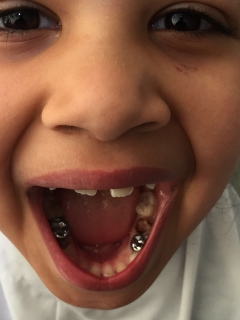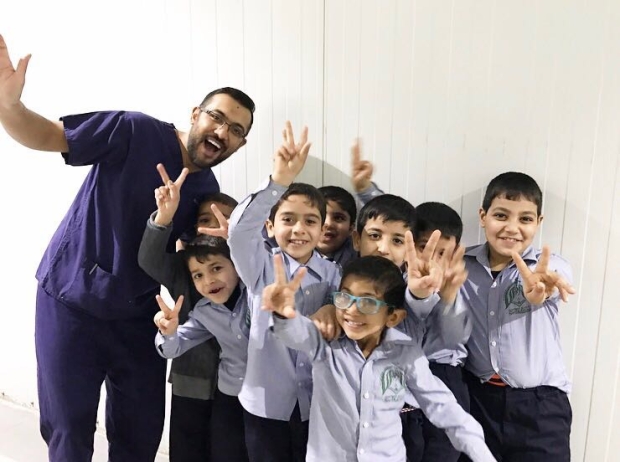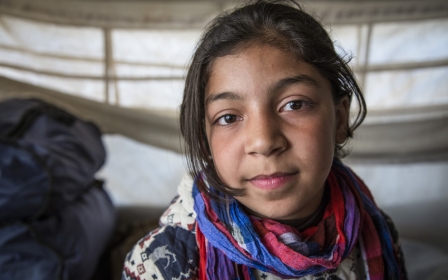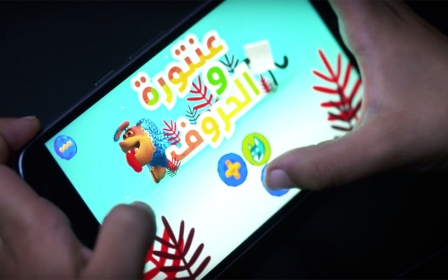Canadian dental mission in Iraq helping kids one smile at a time
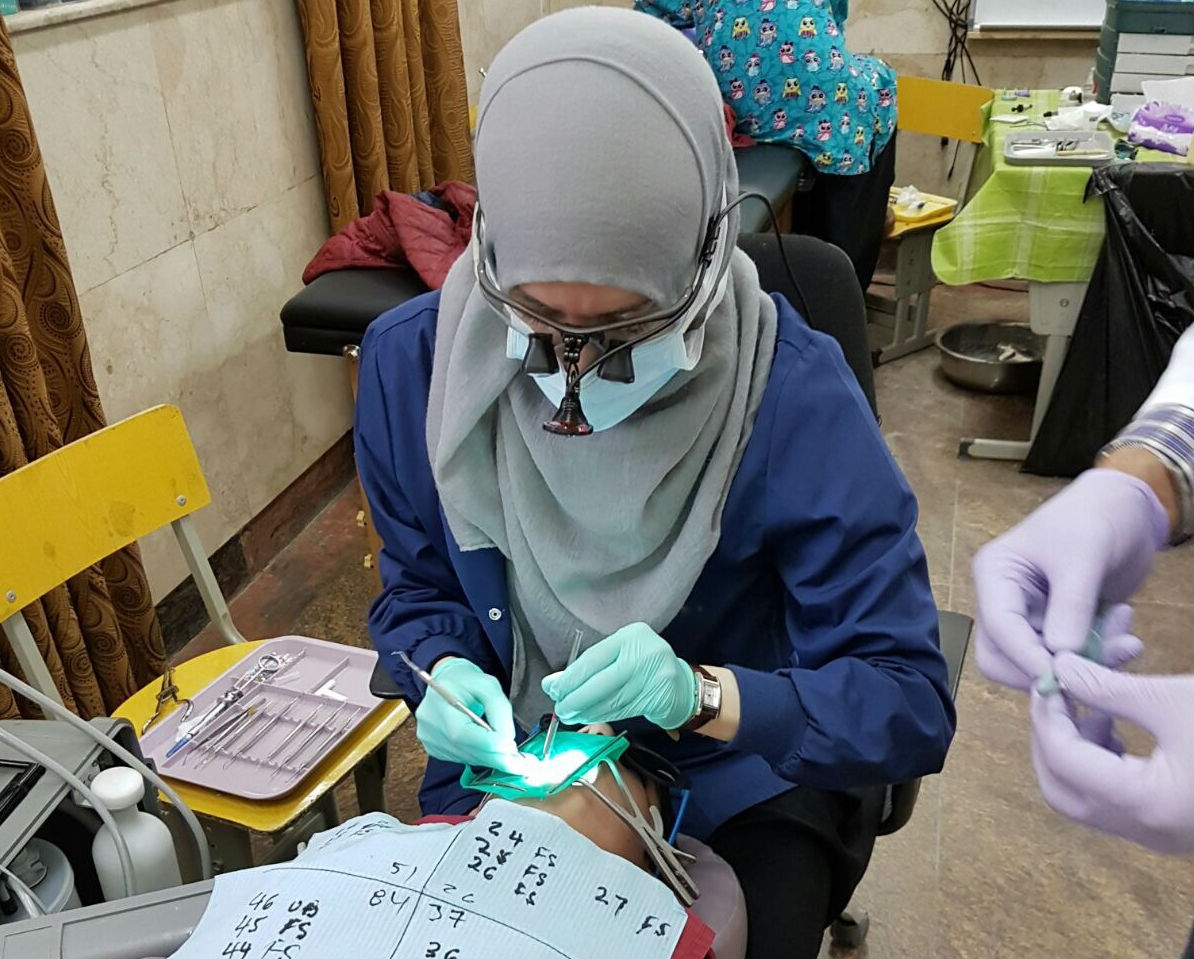
WATERLOO, Ontario - Helping children recover after a painful tooth extraction or root canal treatment is just a routine part of the job for Canadian dentist Dr Yasmeen al-Attar.
“Here in the West, I would reassure them and tell them: ‘It’s ok… mum and dad are coming',” says Iraqi-born Attar from her Waterloo, Ontario dental clinic west of Toronto.
“I generally don’t think twice about saying that,” she adds. “The parents would just come in and the kids calm down.”
But that simple gesture took on a very different tone in Karbala, Iraq, where Attar recently flew back from after a two-week humanitarian dental mission attending orphaned children at makeshift clinics.
“When children were in recovery, I found myself saying the wrong parent, many times. They would say: ‘Mummy is dead’ or ‘Dad’s a martyr’.”
Eventually, she would just tell them their grandparent or relative was coming.
'Everyone has something to give, whether it’s an ear to listen, money or a smile'
- Dr Yasmeen al-Attar, dentist
“It was such a profound moment for me,” she recalls, "because as a child I grew up with two parents.”
Yet treating patients who have grown up in traumatic circumstances isn't necessarily new, as she counts many Syrian refugees among her patients. But the experience of treating orphaned children in the southern Iraqi cities of Najaf and Karbala felt completely different.
“Being Iraqi myself, there was a sense that we [those living in Canada and other Western countries] are not,” she stops, choosing her words carefully, “the lucky ones.”
“But we are the responsible ones.”
'RoboCop’
It is the second consecutive year that Attar has joined Global Kindness, a Vancouver-based charity which takes volunteers twice a year to war and poverty-stricken countries to provide free dental care. The mission to Karbala and Najaf in Iraq has become an annual one every spring. This year, the team also dispatched a team to treat adults in the highly militarised city of Samarra.
In recent years, the charity has expanded to offer medical and optical care and an audiologist has now joined the group, so a hearing aid clinic was also set up this year.
Yet not everyone in the group is a medical professional. Bankers, software developers and teachers are assigned tasks such as screening children before their check-ups, keeping them occupied while they wait in line to be seen and assisting the dentists.
Some were also given the precarious job of holding the more apprehensive patients down before or during a painful treatment - a challenge that earned one non-dental volunteer from Toronto, Mohamed Bakar Somani, the distinguished title of "RoboCop" - the valiant superhuman police officer at the centre of a Hollywood action film.
Most of these children have never seen a dentist before, much less a toothbrush, Somani recalls. It was a fact he learned the hard way soon after arriving in Najaf on 12 March. Many of the children were in desperate need of emergency dental work.
“One of the dentists gave me the task of holding down the kids because she had some difficult kids who would fight back; so with crowns, for example, we would put a filling over it and cap it with a silver cap so the tooth doesn’t get infected.
“With fillings, extractions and root canals, we would be putting a needle in their mouth to freeze them. Some of them were scared to death of the needle. They would start crying or jumping up and down.”
“We would put some of them under anaesthetic,” he adds, “but some would still fight back. Of the 40 to 45 kids a day we would go through, seven to eight would require anaesthetic.”
Fierce resilience
Generally though, most children demonstrated fierce resilience when dealing with pain and suffering, many of the volunteers noted.
One 10-year-old boy, for example, was discovered by the on-site optometrist during last year’s mission to have cancer in one eye. He subsequently had surgery and is now doing well, Dr Hasnain Dewji, the founder of Global Kindness told Middle East Eye.
Another nine-year-old child complained of not being able to hear through one ear, until the on-site audiologist discovered a dead insect in his ear.
"It’s the little things like this that make you realise how much we take for granted," says Dr Ola Hassan, who joined the group from London, UK. “Kids will deal with a lot of pain before they see anyone. The bug incident could have been prevented through a simple visit to the GP.”
'They found it amazing that we would help them'
- Mohamed Bakar Somani, volunteer
Being one of the few Arabic speakers in the group (most of the Global Kindness volunteers originate from east Africa) Hassan was privy to learning about much of the harrowing personal histories of the children, as related through their teachers and sometimes the children themselves.
“Every now and then a child would completely open up to you and say my father passed on… Now I have to look after my grandmother,” she recalls.
“They speak about it as if they’ve been so disengaged with emotions for such a long time. They finally have someone to listen to them and want to let it all out,” she adds.
The excitement and thrill of foreign visitors – especially familiar ones who come year after year – was something all the volunteers attested to.
“They found it amazing that we would help them,” says Somani, of the orphans and their teachers. “That there’s a world out there that does care… and that they’re not alone.”
Refusing to let go
Hassan is a refugee herself and at the age of three moved to the UK from Iraq. She likened the childrens' excitement at the arrival of the dental group to the experience of having a lost long friend come to visit. “There were lots of smiles, hugs and big kisses. And when you give them a hug - they refuse to let go. When they hug you they’re literally closing their eyes and taking it all in.”
The personal attention and continuity are rare for many of the children to experience, she adds, explaining that most orphaned children live with extended family members who may have up to five or six kids themselves. Even those with mothers still alive often end up living with grandparents.
“If they have a good stepfather, who takes well to having a child, they’re considered lucky,” Hassan says.
Most orphaned children live with extended family members who may have up to five or six kids themselves
“But if they don’t, some mothers feel so desperate that they will send their five-year-old to suddenly live with an elderly relative in their 70s. You’re not going to have the same life if you’re living with a grandparent - often they suffer from mental health problems such as depression themselves.”
Marriage at a young age is also seen to be a way to escape poverty. “You often hear from the school teachers that the older girls (aged 14 or 15) are going to be married off soon,” Hassan says.
“The hardest thing about these missions is hearing about this and not being able to do things about them. Girls end up leaving education very early when they get married. Psychologically, they’ve accepted that’s how it is as well.”
It is clear that Global Kindness’ impact has been far-reaching. Inspired by their work, Hassan now runs her own NGO in Greece and Calais, France, that provides emergency dental support for refugees crossing the Mediterranean.
The work gives back to society in a tangible way. Attar recalls one of her Canadian-Iraqi patients questioning how useful trips like this really were in healing a country and its people after years of war.
“For me, that’s the wrong way to think about it,” she says. “Just because a country is going through constant devastation does not mean we stop giving and caring or lose hope. We’re not saying fix the world… but give something.
"Everyone has something to give, whether it’s an ear to listen, money or a smile. Islam has a global and universal message and it stems back to what God has told us to ascribe to.”
Middle East Eye propose une couverture et une analyse indépendantes et incomparables du Moyen-Orient, de l’Afrique du Nord et d’autres régions du monde. Pour en savoir plus sur la reprise de ce contenu et les frais qui s’appliquent, veuillez remplir ce formulaire [en anglais]. Pour en savoir plus sur MEE, cliquez ici [en anglais].


